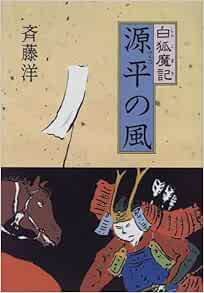
书评
《A Wrinkle in Time》By Madeleine L’Engle
读过几本Newbery,都不喜欢。里面的主角叛逆得很虚伪,很做作,不像自然的儿童,像是造出来的提线木偶,一举一动流露出幕后操纵的痕迹。
在儿童文学里,“反叛”是很常见的主题。但是Newbery主角和我小时候喜欢的叛逆小孩,长袜子皮皮,有很大的不同。长袜子皮皮力大无穷,无法无天,用蛮力把来管教她的成年人一个个都打趴下。相比起叛逆起来简直有点儿无法理喻的皮皮,Newbery主角就温顺得多了,后者的反抗总是很“稳重”,不会“出格”,他们儿童的外表下似乎有着成年人的心。对他们而言,反叛只是化妆,妆面下的他们依然是高度顺服于社会的,只不过他们顺服的往往不是书中的社会,而是读者和作者身处的这个现实社会。
Newbery主角的反叛方式总指向那个现实评价体系里的“正确”,甚至比“正确”更“正确”。比如《A Wrinkle in Time》里面的两个主角Charles和Meg,在作者的设定里,他们在学校被当成傻子,但其实智商非常高,只是不适应学校的评价系统。Charles有着远超五岁小孩的词汇量,Meg则擅长“巧算”数学题,——作者体现他们智商的方式,依然是让他们具有应试体系看重的”才能“,再硬把他们说成”异类“,比如说Meg的解法太巧了老师看不懂,所以她在学校被当成傻瓜。这个反叛设定实在牵强。作者想要设定一个不融于体系的”异类“,却写出了一个现有评价体系下的佼佼者,这说明作者根本就没想过现有体系的缺陷在哪里,也没有设定出冲破界限的反叛。

如果说《A Wrinkle in Time》是个在智力上看似超出框架,实际强化框架的例子,那么《The Witch of Blackbird Pond》的主角Kat就是在道德上,看似超出框架,实际上顺应框架的例子。Kat成长在十七世纪的美洲殖民地,社区里清教徒占多数,Kat周围的人普遍歧视Quaker,然而Kat却一眼看出了这种偏见的荒谬之处,主动去和被众人孤立的Quaker老太太成为朋友。
那么,她是如何获得了这个超越时代的道德智慧的呢?作者完全没有解释。NewBery主角总能这样正确地格格不入,他们似乎天生就知道自己生活的时代里什么观念是错误的,什么信仰是荒谬的,怎么做才是在遵守“真正”的正义,这”真正“将由未来的某一代人来定义——也就是读者这一代人来定义。这些人物的脑子里似乎有一条秘密信道连通着读者所在的世界,作者通过这条信道输送给他们现实社会里”正确“的观念,命令他们以此行动。一方面,虚拟人物超前正确的三观让读者难以相信这些人是虚构世界的土著,一方面他们总能按照”正确“的正义行动,反而给人一种虚伪、飘浮的感觉。
Newbery主角看似超出框架,实则无时不在框架之中,甚至比普通人把框架的准则推行的更远。他们做出反叛的姿态,但他们反叛的方式、反叛的结果,正是框架极力推崇、喜闻乐见的,可以说他们是叛逆了个寂寞。
拒绝遵守制度的人会付出相应的代价。叛出体系的人会失去体系带来的利益,还可能遭受体系对反叛者的打压、报复和惩罚。正因为反叛一定会付出代价,反叛主题经常会和自我牺牲、侠义精神联系起来。反叛者通过反叛想要得到了什么,又付出了什么样的代价,这对理解反叛的意义至关重要。
Newbery主角看似有着侠义精神,Meg为了找到丢失的爹,冒着危险进行时间旅行;Kat为了保护Quaker老妇人,宁可被全镇当成怪胎。但是细想一下,就会发现,这些侠义儿童要保护的,总是成年人,按理来说,权力、力量都高于他们的成年人。把儿童保护成年人,说成是值得赞扬的“侠义”,背后的鸡贼之心昭然若揭。不论如何美化,让儿童去守卫成人的“义举”也不能打动我,只让我觉得厌烦。成年人的问题请自己解决,不要拖小孩下水,让小孩解决成人的问题不能体现小孩的“仁义”,只能体现成人的卑劣。
能触动我的,让我觉得有意义的反叛,是儿童去发扬天性,做力所能及的事,一步步拓宽自己的世界。让儿童保护成年人来体现儿童侠义,说实在的很恶心,也悖逆自然天理;让儿童展现小动物的保护欲来体现儿童的侠义心,读着就很舒服,感觉很自然。

《The Midnight Swan》有个情节很触动我,就在于它少有地表现出了儿童对小动物的侠义心。Tylwyth Teg(威尔士妖精)偷了午夜天鹅的蛋,午夜天鹅说要她解除她下在发条乌鸦身上的咒语,就必须用被偷走的蛋来交换。主角Seren想要救她的朋友发条乌鸦,克服重重困难,只身来到森林深处,对Tylwyth Teg说,你不是想要小孩子吗?给我蛋,作为交换我可以跟你走。
做出牺牲自己、拯救朋友的承诺对于成年人来讲,需要很多的铺垫和解释,但对于儿童来讲,就有种自然而然的感觉。Seren知道被妖精带走就再也回不到现实世界了,但比起对现实世界的留恋,她把朋友的幸福看得更加重要。
天然儿童就是这样,不觉得人比其它生灵更高贵。儿童往往会冒着生命危险,去救一只鸟、一只猫,但是对人的生命,包括自己的生命反而没那么看重,比如我小学的时候,有个同学爬到很高的树上去救猫,完全没想过要害怕从那么高的地方摔下来的危险。我自己小时候,在报纸、电视看到残害野生动物、破坏雨林植被的新闻都气得吃不下饭,恨不得把罪犯五马分尸,我觉得伤害动物、伤害树木的人就是该以死抵罪,甚至死不足惜,他们即使死了,也只赔了一条命,而被他们伤害的大象、老虎、藏羚羊再也回不来了。
Newbery主角像个假小孩,这类小孩的特点是他们最看重与人的关系,特别是与成年人的关系,同时完全无视和其它有灵生物的关系。成年人写儿童文学,最喜欢YY的一个情节,就是让虚构小孩把与成年人的关系放在高于一切的位置上。女人写儿童探险就安排小孩救妈,男人写儿童探险就安排小孩找爹,让孩子救妈找爹完全是成年女男在自恋地代入巨婴家长角色。比起救妈找爹,救狗找猫更符合小孩的天性。妈爹请自己救自己,放过小孩吧,小孩也是,你的精力,用来和小狗小猫小兔大树一起玩儿不好吗?别再浪费在找爹救妈上了。
 A Book Review of
A Book Review of 书评
书评 A Book Review of
A Book Review of

